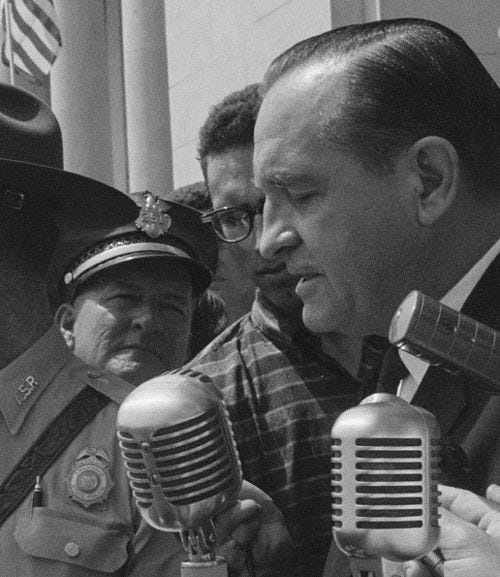Little Ditty About Orval Faubus
Faubus, the Fire, and the Boys Who Were Left in the Dark
We have been spending time with the history of the Negro Boys Industrial School fire of 1959. It is one of the most painful and least discussed events in Arkansas history. Twenty one boys died in the “Big Boys Dorm” while locked inside. Their lives were cut short in a building that had been allowed to deteriorate. The tragedy happened only nineteen months after Governor Orval Faubus made national headlines for blocking the Little Rock Nine from entering Central High School.
Two events. Same state. Same administration. Both shaped by decisions about which children were valued and which children were not.
The song linked below is something we have listened to while reviewing this history.
🎶 Listen:
When Faubus refused integration in 1957, the world saw the crisis unfolding on the steps of Central High. The cameras were rolling. Reporters from across the country were watching. The state became a symbol of massive resistance.
The boys at the Negro Boys Industrial School did not have cameras. They did not have the eyes of the world on them. They lived in a place that was out of sight and out of mind, located miles from downtown Little Rock. Their dormitory had no working fire extinguishers, the boys never had fire drill, there was no adult supervision. Their doors locked from the outside. Their living conditions had been criticized for years, yet nothing meaningful changed.

The fire on March 5, 1959 revealed a truth that many already knew. The state could mobilize the National Guard to keep nine Black students out of a school. It did not mobilize anything close to that energy to protect the boys in its custody.
The more we learn, the more we understand how the era shaped their fate. The decisions made at the highest levels of the state affected which institutions received oversight, funding, and attention. The Negro Boys Industrial School received very little of any of those things.
We hope that revisiting this history honors the boys who died and the survivors who lived with the memory. Their stories deserve the light they were denied.
Thank you for reading and for helping us keep their history alive.

